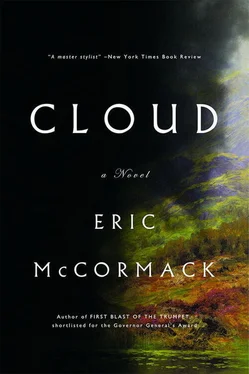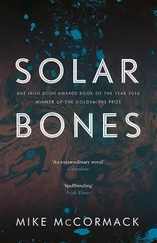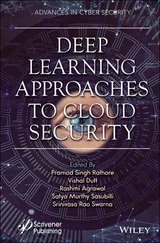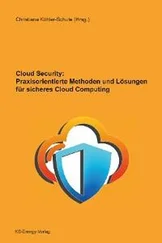Indeed, one day in the university library I was passing the Anthropology and Folklore area. Out of curiosity, I went in and found a large section devoted to the history of Scottish superstitions. The titles were scholarly enough, but some of the chapter headings contained such alarming terms as “the Evil Eye,” “maledictions,” “propitiatory sacrifices,” and “demoniac possession.”
A quick glance through some of these chapters led me to conclude that while the culture of the Tollgate might be inbred and violent, its proneness to superstition was as ancient as humanity itself.
ON MY NIGHTLY journeys home, by the time I arrived at my stop I was the only university student left aboard the bus. The stop was about a half-mile walk from our tenement. If the streetlamps were unbroken, I’d enjoy the way my shadow raced from one lamppost to the next, catching up on itself only to be outstripped again. I was also glad of the unbroken lamps for another reason— and it wasn’t for fear of ghosts. It meant I could keep an eye out for street gangs. Whenever I saw a group of men on a corner, I’d make sure to keep well away from them. The fact that I was carrying books would have been a good enough reason, in the Tollgate, for being beaten up.
During my years at university, when I’d get home my father would want to know what I was studying. After dinner we’d spend hours discussing the various ideas I’d picked up, especially in philosophy and psychology. I must admit I was more easily impressed than he was. I remember telling him one night that when ordinary people say “Life’s full of contradictions,” they actually mean “Life’s full of subcontraries.” And that to say “It’s not not raining” means exactly the same as “It’s raining.”
He puffed furiously on his cigarette.
“Ordinary people never say ‘Life’s full of contradictions’ anyway,” he said. “But if they did, you’d know what they meant. If you told them it was ‘full of subcontraries,’ they wouldn’t know what you were talking about. In fact, they’d think you were mad. Or should I say, ‘They’d not not think you were not not mad.’” He found that hilarious and turned to my mother. “Right, Nora?”
But I could see she didn’t find it funny. She didn’t much like the idea that language might be full of such snares. I’d tried to convince her of that once before by using some of the examples I’d learned in philosophy lectures. For instance: How many pieces of straw have to be heaped on top of one another before they become a haystack?
She just shrugged her shoulders in despair.
Once, she did laugh, though. I asked her: How much hair does a man have to lose before his wife considers him bald and not just thinning on top?
She glanced over at my father’s thinning hair, and they both began laughing. He was really enjoying her laughter at his expense. They were clearly so fond of each other, I might have gone on and asked: How much liking do two people need to have for each other before you’d say they were in love? Of course, that would only have embarrassed them.
ONE NIGHT AFTER DINNER I told my father how we’d had a discussion in a philosophy seminar on the Theory of Intelligent Design: the theory was based on the notion that this world is so marvellously structured and contains so many wonderful things that there must be a great Mind at the root of it.
He snuffled and snorted.
“Only someone who’d never lived in the Tollgate could come up with an idea like that,” he said. He shuffled over to the fireplace and brought back a book he’d been reading from amongst the pile of library books on the mantelpiece. He found a page in it and handed the book to me. It was called The Aphorisms of Pablo Renowski .
“Here, read out that section to us,” he said. So I did.
“‘Look at the world, with its thousands upon thousands of years of wars, plagues, famines, murders, public and private brutalities, injustices, parricides, genocides. One would have to be a supreme cynic not to believe there must be some great pattern, some great plan behind it all.’”
When I finished, my father was puffing away at his cigarette, very pleased with himself.
“What would your professors think of that?” he said. “The world only sounds great, depending on how you look at it. If you’re from the Tollgate, The Theory of the Big Blunder would fit better.” He laughed and turned to my mother. “A good one, eh Nora?”
She didn’t look happy. I think, for her, unpleasant ideas were bad enough without having to hear them put into words.
IN FACT, most of what I learned at the university seemed to upset my mother. On another night, I was talking about a lecture on the effects of psychological stress on soldiers returning from the war.
My father heard me out, choking and coughing on the smoke from his cigarette, and seemed impressed, which surprised me. He made what amounted to a little speech, punctuated with coughs and throat clearings.
“For once, your professor may be right,” he said. “In fact, I wouldn’t be surprised if all the civilians in Glasgow during the war are suffering from psychological stress, too. I mean, the planes dropped bombs on us, trying to kill us day and night, didn’t they? The same goes for all the civilians in Europe and Russia and the other countries that were bombed too, right?
“In fact, when you come to think of it, it’s not just war that causes the psychological stress. If you consider the Black Death and all those other horrible things that have terrified people for centuries, your professor could include nearly everybody who’s ever lived — they’ve all suffered from psychological stress, including the kings and the prime ministers and the politicians and that whole gang.
“So, that would explain why everything’s such a mess. Psychologically stressed, every one of us! What hope is there for the world?” He turned to my mother. “And it’s even worse for us, eh Nora? On top of the war and everything else, you and I were brought up in orphanages and then had to live in these slums. I wonder what kind of mess the two of us must be in — just psychologically, of course.”
My mother looked so worried, he immediately backed off and laughed.
“Oh, Nora,” he said. “I’m only kidding. Harry and I are just having a bit of fun.”
INDEED, THOSE NIGHTLY discussions with him were fun, but they often opened my eyes. He had so many astute things to say— things I’d never have thought of. Talking to him was sometimes like opening an old shoebox and finding jewels inside.
My mother was much more interested in my social life at university, especially how I got along with the female students. I’d gone for coffee with a few girls from my various classes, nothing serious. So I was happy to tell her about those.
I didn’t tell her I had my eye on one girl in particular.
It was at the beginning of my second year when I became aware of her. She would come to the study hall only once or twice a month and, even though there might be vacant chairs at tables all around, she’d make a point of sitting opposite me at my favourite table. Without looking up I’d know, from the faint smell of lilac that accompanied her, that she’d arrived.
Once she settled down and was concentrated on her work, I’d sneak a glance at her. She had long brown hair and green eyes. Her handwriting, though I couldn’t make out the words upside down, looked elegant, unlike my own choppy scrawl. Whenever she rose to go to the bookshelves, my heart would beat at her graceful walk, the way her skirt swirled round her thighs and calves.
Again and again I made up my mind to speak to her but kept putting the moment off. It was clear to me she was from that privileged world that had nothing in common with the sordid streets of the Tollgate, or with me. Yet, for some reason, she’d pick my table in the study hall.
Читать дальше











